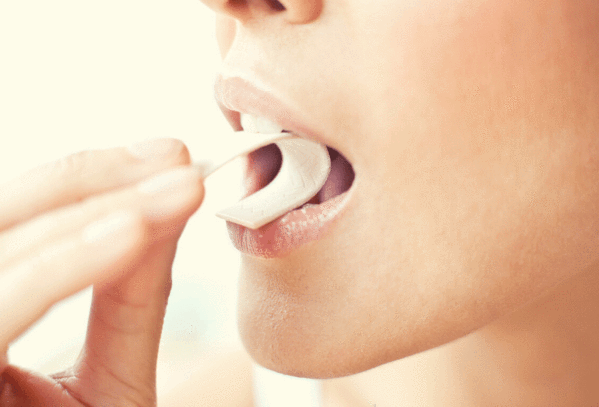Many people try to look for "How to Lower BAC" tricks before they get in the car. BAC stands for blood alcohol levels. However, there is no way to speed up this process. All the tricks that you can read on the internet or that your friends tell you are false beliefs.
Alcohol is a key factor in many car accidents, falls, burns, etc. The DGT reports that the vast majority of fatal accidents, between 30-50%, are the result of alcohol consumption.
How alcohol affects a person

Alcohol is one of the most treacherous friends out there. Alcocat defends that the acceptable rate for driving should be "0" although it is something very hard to manage.
Most users in Spain can drive with a blood alcohol level below 0.25 g/l in-breath or 0.5 g/l per liter in blood. But, just by consuming a couple of drinks, you easily exceed these figures.
Also, blood alcohol concentration may vary depending on the person and the situation they are in. For example, if two people drink the same amount of alcohol, they won’t have the same BAC. A number of factors can have an effect on this:
- Years
- Bodyweight
- Sex
- Drinking alcohol on an empty stomach
- If mixed with medication
- Drink a lot of alcohol in a very short period of time.
A person who drives after drinking alcohol, even if it is below the recommended rate, puts his or her life, and the lives of others, at risk. A study by RACE explains that 44% of all Spanish people have taken their car at least once after drinking alcohol.
Myths About Blood Alcohol Concentration Levels
According to several experts, the liver is only capable of metabolizing 0.12 g/l of alcohol in blood every hour. Therefore, it can take hours to metabolize all of it. For that reason, there are many people who seek to accelerate this process, however, we must tell you that they are all myths and there is no real way to artificially lower the levels of alcohol in the blood.
Here are some myths and beliefs about how to lower blood alcohol. However, none have been proven effective.
Exercise
The first myth that exists is exercise. Many people believe that if you exercise, you can reduce the amount of alcohol in your blood because you activate your metabolism and you start sweating. However, the percentage of alcohol eliminated by sweating is only 1%.
A person who exercises will feel more awake and alert. But you will still have alcohol in your system. So, you know that even if you do a lot of push-ups or run, your liver will not eliminate alcohol faster.
Drink water
Another myth is to drink a lot of water before driving. However, even if you drink a lot of it, it will not help you lower your blood alcohol levels.
Water works very well to prevent dehydration and eliminate all the toxins from the body. And, although drinking fruit juices can help the liver eliminate alcohol more easily, the process still takes several hours.
Drink coffee
Drinking coffee before driving is also one of the most popular myths. Many people believe that strong coffee can counteract the effects of alcohol. But it doesn't. Coffee makes you more alert and not as sleepy, but it doesn't remove alcohol from your system.
Also, coffee is not a good choice because both alcohol and coffee cause dehydration. This could lead you to this negative physical state.
Cold showers
Taking a cold shower does not contribute to reducing alcohol. This action only helps to keep you alert for a period of time, but you are still won’t be well enough to drive.
Eat a lot
Eating before, during, and after helps decrease the absorption of alcohol. When a person consumes alcohol and has eaten before the stomach processes the food first and as a result alcohol is processed slower, which lessens its effects. But it does not mean that if you eat you will avoid testing positive for alcohol.
Chewing gum

If after a few drinks you want to take the car and you think that chewing a piece of gum can prevent you from being detected when tested: error! It can mask the smell of alcohol, but it will not fool the breathalyzer, as they detect alcohol in the alveolar air, i.e. the air in the lungs where the gaseous exchange of our circulatory system takes place.
When you have consumed too much alcohol, what you need is to take some time and rest in order to fully recover. No type of drink or food can disguise the degrees of alcohol.
How does your body metabolize alcohol?
It is very common for people to drink alcohol at parties, meetings or social events. So, It is important to know how the body reacts once the alcohol has been ingested.
When a person has consumed alcoholic beverages, it takes time for the liver to process and break down this substance. The alcohol goes directly into the stomach, then approximately 20% to 80% is absorbed in the small intestine; all of this gets sent directly to the liver. The liver converts the alcohol into a harmless substance for the body. The main problem is that this process is very slow. The liver takes time to transform it into a non-toxic or non-active substance.
Did you know that it takes the liver an hour to metabolize a glass of wine? That means that if you drink four glasses the body will take four hours to eliminate all of it.
The measurement used to calculate is called blood alcohol concentration or BAC, this estimates the proportion of alcohol in the blood. There are many variables that influence alcohol levels. Therefore, the best option is to monitor your blood alcohol levels with a digital breathalyzer such as the one from Alcocat. It is a small pocket breathalyzer that connects to your smartphone allowing you to can check your current state. It also has a very aesthetic, minimalist and elegant design. There are no screens or buttons. Don’t wait any longer and get your own!
Preventing and avoiding hangovers

The less alcohol you drink, the less likely you are to get a hangover. However, if you want to drink and reduce your hangover symptoms, don't hesitate any longer and follow the following steps:
- Eating before, during and after drinking alcohol will keep you from feeling sick the next day. Avoid drinking on an empty stomach. A full stomach slows down the absorption of alcohol in your body and helps protect you from vomiting.
- Drinking slowly will give your liver time to metabolize all the alcohol and prevent it from collapsing.
- Drinking water in between drinks is very important because it helps you stay well hydrated. Also, drinking some orange juice or other fruit juice helps prevent low blood sugar.
- Avoid taking acetaminophen, as it ends up in the liver where all the alcohol is being processed and this can cause swelling.
- Take a warm shower to prevent headaches.
- Avoid caffeine after drinking alcohol, because it can make you more dehydrated.
- Alcohol makes you go to the bathroom more often, and each time you go, you lose potassium. That's why it's recommended that you eat bananas the next morning to avoid nausea and to increase your energy.
Remember: Drink wisely and don't skimp expenses on your drink. A cheap drink will give you a worse hangover. Producers of more expensive alcohol brands tend to filter impurities in a better way.
Short-term effects of alcohol
Drinking alcohol can affect your body right away. A healthy person usually experiences the following symptoms depending on the degree of alcohol:
- BAC as low as 0.05:
- feeling of well-being
- talkative, relaxed and confident
- BAC from 0.05 to 0.08:
- impaired judgment and movement
- reduced inhibitions
- BAC from 0.08 to 0.15:
- slurred speech
- impaired balance, coordination, vision, and reflexes
- shaky emotions
- nausea and vomiting
- BAC from 0.15 to 0.30:
- unable to walk without assistance
- Sleepy
- labored breathing
- loss of memory
- loss of bladder control
- possible loss of consciousness
- BAC over 0.30:
- comma
- death

Alcohol and driving are not good friends
You might have seen for yourself that alcohol and driving are not a good combination. Drinking too much alcohol can be very harmful and risky. No method exists to lower your blood alcohol levels or fool a breathalyzer.
Also, drinking and driving can be very expensive, as the financial penalties are high. All of the methods mentioned above can help a person feel better and seem more alert. But if you are stopped and are forced to take a breathalyzer test your alcohol levels will still be high. So, if you get behind the wheel, you can have big consequences.
The best option for the days you decide to drink is to have a designated driver who hasn't had a single drop of alcohol, or to take a taxi - safety first!

